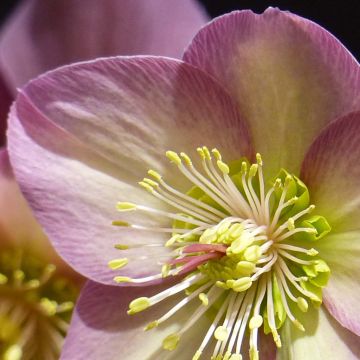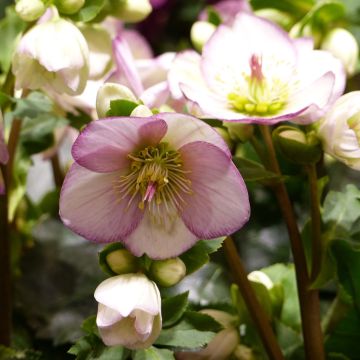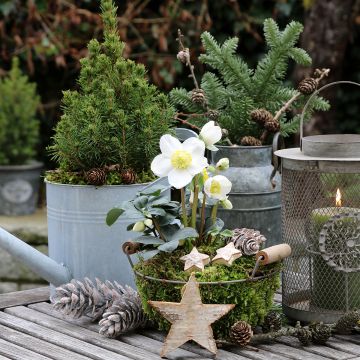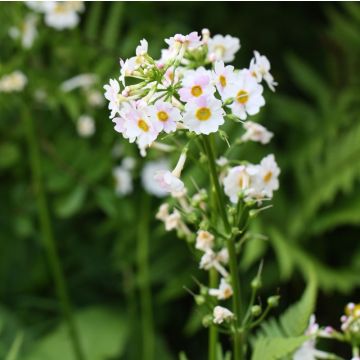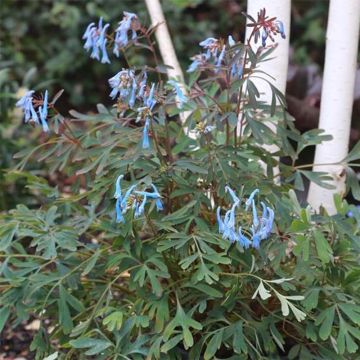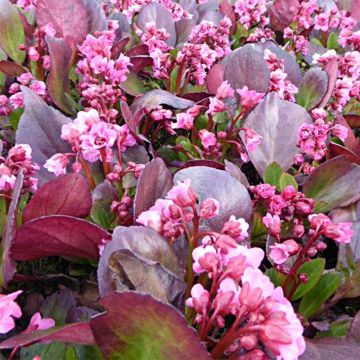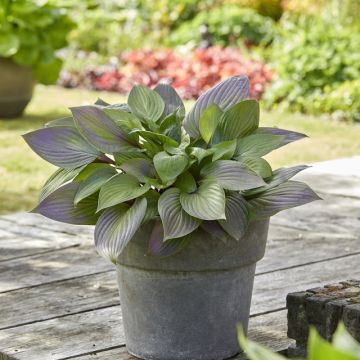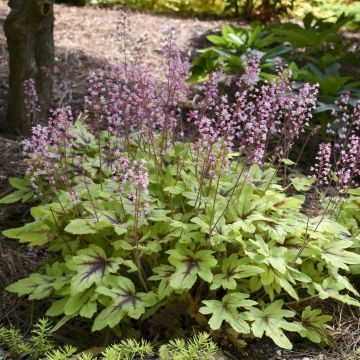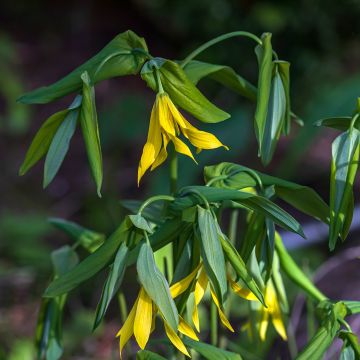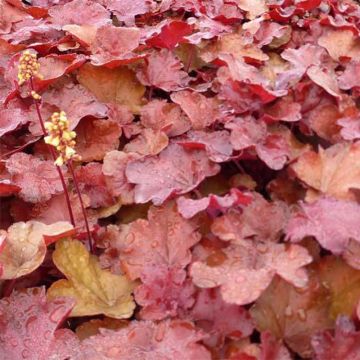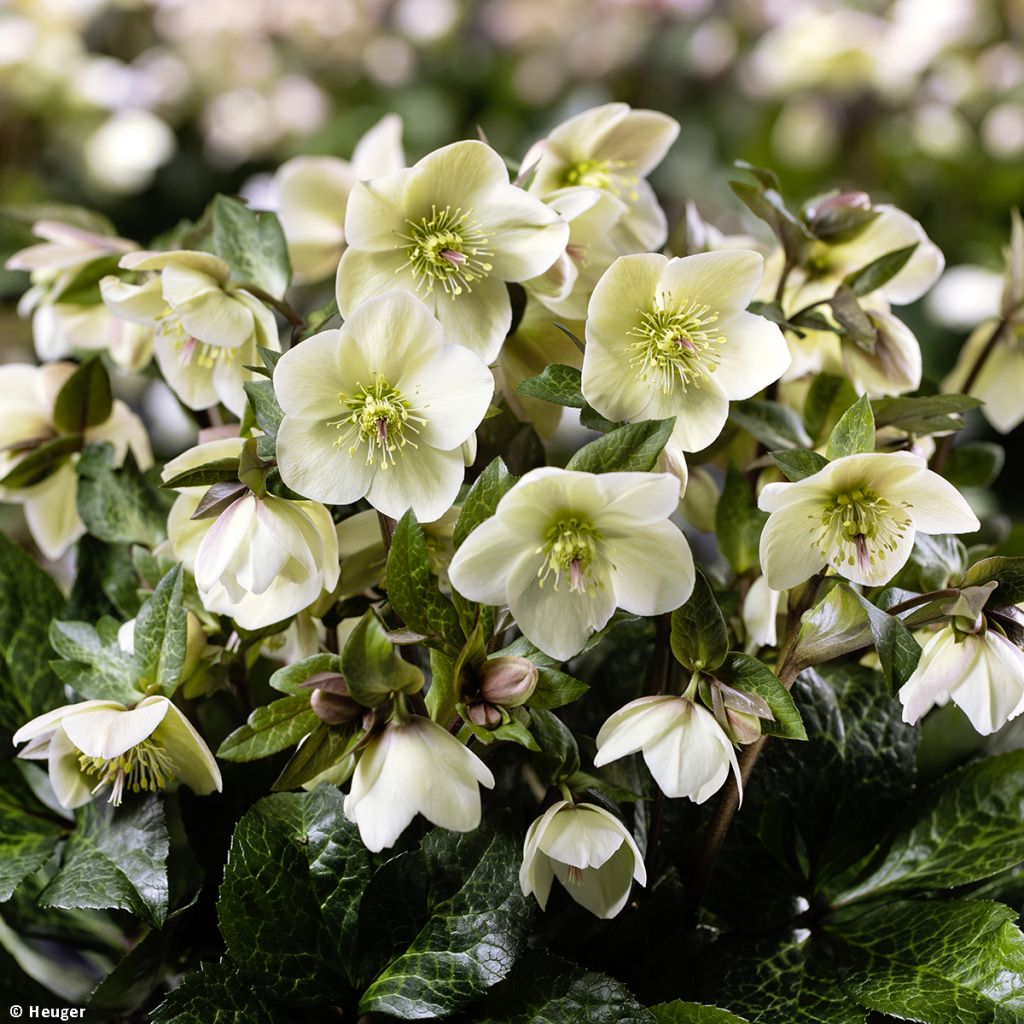

Hellébore HGC Ice n' Roses Marbled Milla Marble
Helleborus Ice N' Roses Marbled Milla Marble - Hellebore
Helleborus x glandorfensis Milla Marble
Hellebore
Hellébore HGC ICE N' ROSES Marbled in a 2L-3L pot. Very small plant, with leaves affected by botrytis and arrived with broken leaves and flowers.
Olivier , 05/02/2024
Special offer!
Receive a €20 voucher for any order over €90 (excluding delivery costs, credit notes, and plastic-free options)!
1- Add your favorite plants to your cart.
2- Once you have reached €90, confirm your order (you can even choose the delivery date!).
3- As soon as your order is shipped, you will receive an email containing your voucher code, valid for 3 months (90 days).
Your voucher is unique and can only be used once, for any order with a minimum value of €20, excluding delivery costs.
Can be combined with other current offers, non-divisible and non-refundable.
Why not try an alternative variety in stock?
View all →This plant carries a 12 months recovery warranty
More information
We guarantee the quality of our plants for a full growing cycle, and will replace at our expense any plant that fails to recover under normal climatic and planting conditions.
Would this plant suit my garden?
Set up your Plantfit profile →
Description
Hellebore Ice 'N' Roses Marbled Mona Marble is a Christmas rose with exceptional qualities. A recent hybrid obtained in Germany and introduced in 2017, it combines all the qualities of its parents, including H. corsicus, H. niger, and H. orientalis. Very robust, it is cold-resistant, heat-resistant, and tolerant of rather dry soils in summer. It blooms for a long time, from December to April, with large flowers in dense colors. It produces up to 15 stems per plant, each developing several flowers on compact stems, of an elegant wine-coloured hue, a slightly purplish and brown burgundy, enlivened by yellow stamens. Its highly ornamental foliage is dark green marbled with white cream, strongly dentate, dark, and leathery. This hellebore will live for many years in the garden, in all climates.
Hellebores belong to the family of Ranunculaceae. The Helleborus x glandorfensis Ice 'N' Roses® is a complex horticultural hybrid belonging to a series of Christmas roses developed in Germany after many years of research and drastic selection. The flowers of Ice 'N' Roses hellebores come in 3 colours: red, pink, and white.
Ice 'N' Roses Marbled Mona Marble is a solid perennial plant, with remarkable longevity, fairly rapid growth, and vigorous vegetation, but sterile; it can only be reproduced (and delicately) by dividing clumps. It has a bushy habit, with an adult plant reaching 30cm (12in) in height and at least 50cm (20in) in spread. From December to March-April, appear brownish stems that are not very tall, bearing purple-brown buds that open into 5-petaled flowers of a rich wine-coloured hue, with a satiny texture, 6-7cm (2-3in) wide, adorned in their center with beautiful yellow stamens. The evergreen foliage is composed of fairly leathery oval or lanceolate segments, strongly dentate, dark green with a satiny texture, marbled with white cream. This hellebore is hardy down to -20°C and tolerates a wide range of soils, whether they are limestone or clay, humus-rich or sandy, constantly moist or even dry in summer.
This quite revolutionary hellebore is full of qualities. It should thrive in all our gardens, from north to south. From the first year, many flowers already appear on the plants. New flowers constantly form, creating a beautiful contrast between the blooming and faded flowers. These flowers can be perfectly used in bouquets. It is also a good ground cover for partially shaded areas of the garden. Use hellebores like elements of an ancient tapestry, mixing them with woodland plants in brighter colours. They are well highlighted when planted near evergreen bushes of modest size (Mahonia 'Apollo', Nandina 'Fire Power') and under conifers (especially on wind-exposed sites). Surround them with primroses, wood anemones, Corydalis, Dicentras, cardamines, or spring-flowering bulbs, and snowdrops. You can also accompany them with ferns and shade-loving irises to create a beautiful contrast, a little later in the season. They can also be planted in groups, like a bouquet, near the entrance of the house, in a shady location, to enjoy their early flowering up close. They are suitable for borders, flower beds, and containers. Over time, the flowers of the Hellebore do not fade like the majority of other flowers, but dry up.
Report an error about the product description
Flowering
Foliage
Plant habit
Botanical data
Helleborus
x glandorfensis
Milla Marble
Ranunculaceae
Hellebore
Cultivar or hybrid
Other Hellebore, the Christmas Rose
View all →Planting and care
The Hellebore HGC Ice 'N' Roses is not demanding in terms of soil type: it tolerates limestone and fairly dry soils in summer, as well as clayey and cool soils. However, it particularly appreciates rich soils, rather heavy and well-worked. Plant it in partial light shade in fertile soil, enriched with leaf compost, kept moist to help it establish. Incorporate good compost at planting. Hellebores do not like stagnant water that can rot its roots. Planting under the clear shade of large leafy trees is perfect. They are easy-to-live-with plants but should not be stressed or disturbed. These perennials also have the reputation of being homebodies: once well established, they do not like to be transplanted. Young plants can take 2 to 3 years to bloom, sometimes more, but afterwards, there will be no more problems. Over the weeks, their color darkens but they do not wither like most flowers, they rather dry up.
On a balcony or terrace, plant them in pots 4 to 5 times larger than them, as they need space to develop their root system. Very hardy, most hellebores can withstand negative temperatures down to -15°C (5°F) without suffering, allowing them to adapt to almost all regions.
Planting period
Intended location
Care
-
, onOrder confirmed
Reply from on Promesse de fleurs
Similar products
Haven't found what you were looking for?
Hardiness is the lowest winter temperature a plant can endure without suffering serious damage or even dying. However, hardiness is affected by location (a sheltered area, such as a patio), protection (winter cover) and soil type (hardiness is improved by well-drained soil).

Photo Sharing Terms & Conditions
In order to encourage gardeners to interact and share their experiences, Promesse de fleurs offers various media enabling content to be uploaded onto its Site - in particular via the ‘Photo sharing’ module.
The User agrees to refrain from:
- Posting any content that is illegal, prejudicial, insulting, racist, inciteful to hatred, revisionist, contrary to public decency, that infringes on privacy or on the privacy rights of third parties, in particular the publicity rights of persons and goods, intellectual property rights, or the right to privacy.
- Submitting content on behalf of a third party;
- Impersonate the identity of a third party and/or publish any personal information about a third party;
In general, the User undertakes to refrain from any unethical behaviour.
All Content (in particular text, comments, files, images, photos, videos, creative works, etc.), which may be subject to property or intellectual property rights, image or other private rights, shall remain the property of the User, subject to the limited rights granted by the terms of the licence granted by Promesse de fleurs as stated below. Users are at liberty to publish or not to publish such Content on the Site, notably via the ‘Photo Sharing’ facility, and accept that this Content shall be made public and freely accessible, notably on the Internet.
Users further acknowledge, undertake to have ,and guarantee that they hold all necessary rights and permissions to publish such material on the Site, in particular with regard to the legislation in force pertaining to any privacy, property, intellectual property, image, or contractual rights, or rights of any other nature. By publishing such Content on the Site, Users acknowledge accepting full liability as publishers of the Content within the meaning of the law, and grant Promesse de fleurs, free of charge, an inclusive, worldwide licence for the said Content for the entire duration of its publication, including all reproduction, representation, up/downloading, displaying, performing, transmission, and storage rights.
Users also grant permission for their name to be linked to the Content and accept that this link may not always be made available.
By engaging in posting material, Users consent to their Content becoming automatically accessible on the Internet, in particular on other sites and/or blogs and/or web pages of the Promesse de fleurs site, including in particular social pages and the Promesse de fleurs catalogue.
Users may secure the removal of entrusted content free of charge by issuing a simple request via our contact form.
The flowering period indicated on our website applies to countries and regions located in USDA zone 8 (France, the United Kingdom, Ireland, the Netherlands, etc.)
It will vary according to where you live:
- In zones 9 to 10 (Italy, Spain, Greece, etc.), flowering will occur about 2 to 4 weeks earlier.
- In zones 6 to 7 (Germany, Poland, Slovenia, and lower mountainous regions), flowering will be delayed by 2 to 3 weeks.
- In zone 5 (Central Europe, Scandinavia), blooming will be delayed by 3 to 5 weeks.
In temperate climates, pruning of spring-flowering shrubs (forsythia, spireas, etc.) should be done just after flowering.
Pruning of summer-flowering shrubs (Indian Lilac, Perovskia, etc.) can be done in winter or spring.
In cold regions as well as with frost-sensitive plants, avoid pruning too early when severe frosts may still occur.
The planting period indicated on our website applies to countries and regions located in USDA zone 8 (France, United Kingdom, Ireland, Netherlands).
It will vary according to where you live:
- In Mediterranean zones (Marseille, Madrid, Milan, etc.), autumn and winter are the best planting periods.
- In continental zones (Strasbourg, Munich, Vienna, etc.), delay planting by 2 to 3 weeks in spring and bring it forward by 2 to 4 weeks in autumn.
- In mountainous regions (the Alps, Pyrenees, Carpathians, etc.), it is best to plant in late spring (May-June) or late summer (August-September).
The harvesting period indicated on our website applies to countries and regions in USDA zone 8 (France, England, Ireland, the Netherlands).
In colder areas (Scandinavia, Poland, Austria...) fruit and vegetable harvests are likely to be delayed by 3-4 weeks.
In warmer areas (Italy, Spain, Greece, etc.), harvesting will probably take place earlier, depending on weather conditions.
The sowing periods indicated on our website apply to countries and regions within USDA Zone 8 (France, UK, Ireland, Netherlands).
In colder areas (Scandinavia, Poland, Austria...), delay any outdoor sowing by 3-4 weeks, or sow under glass.
In warmer climes (Italy, Spain, Greece, etc.), bring outdoor sowing forward by a few weeks.






























